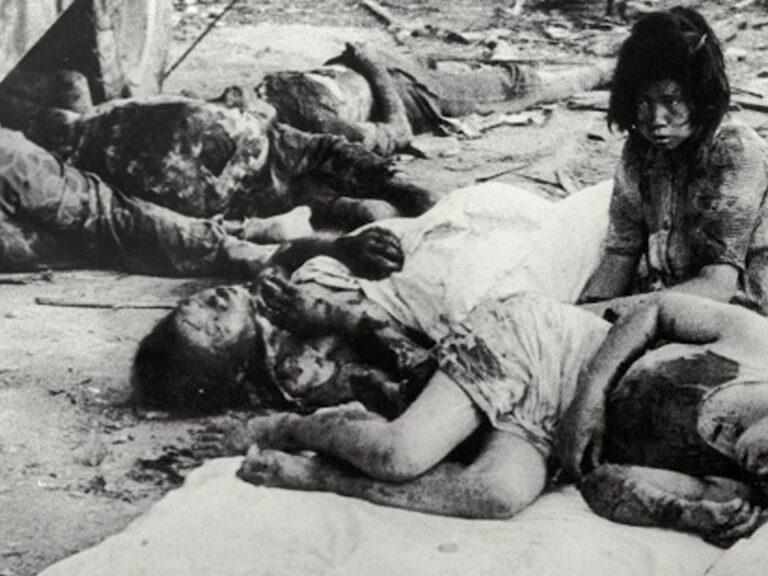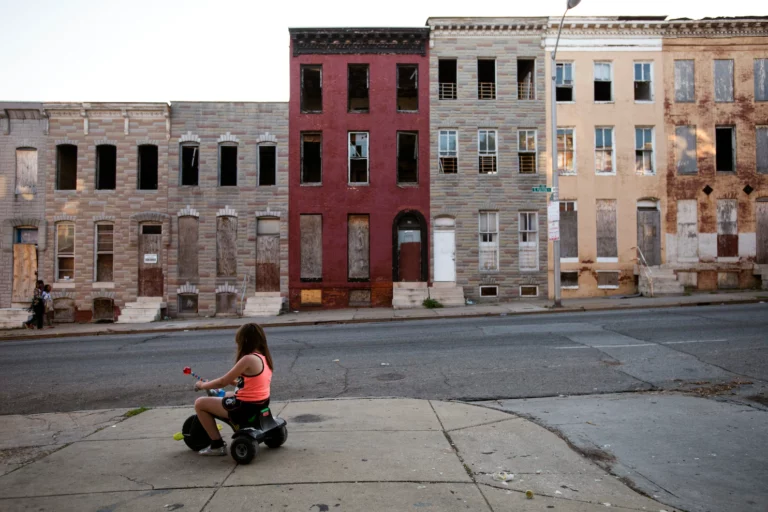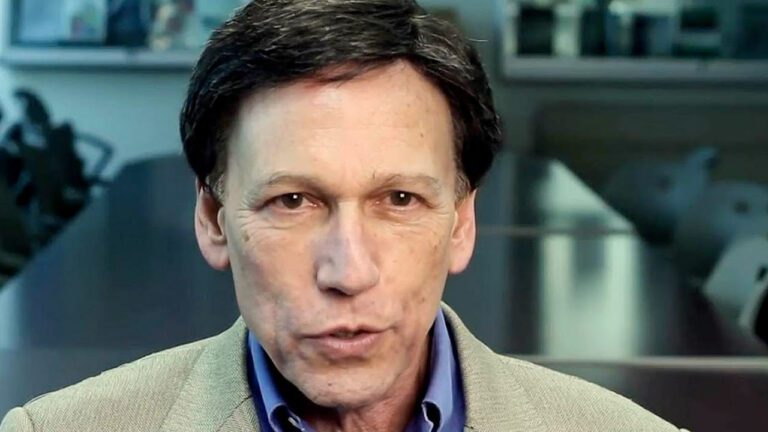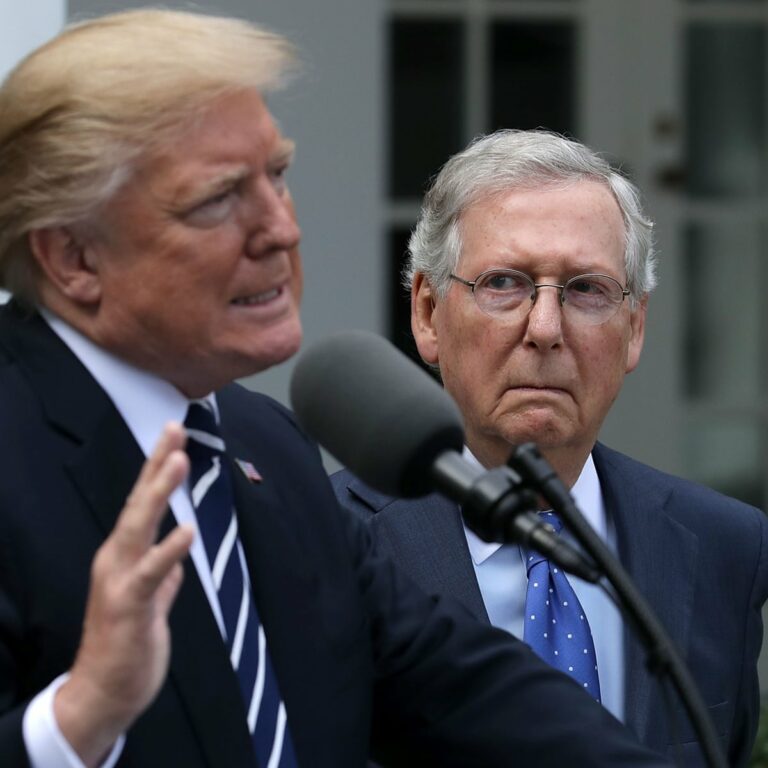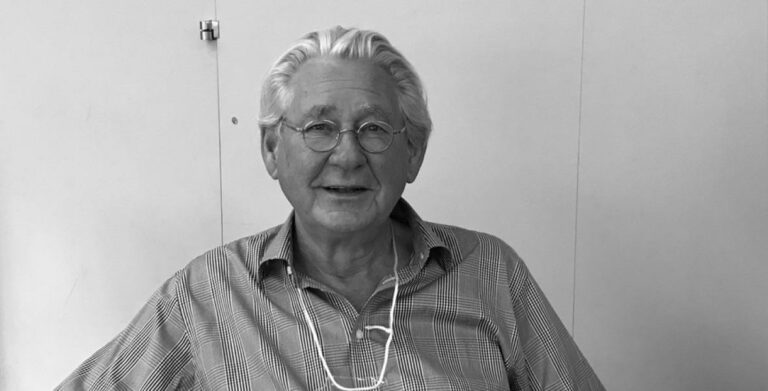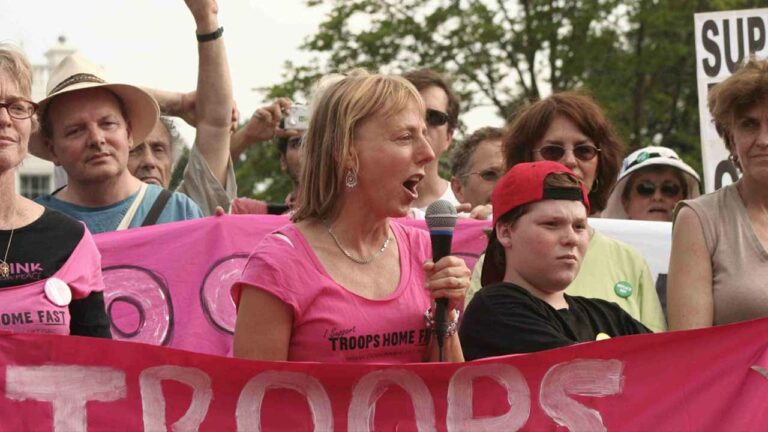This interview was originally released on April 14, 2014. Mr. Lander traces the history of Venezuela from dictatorship to attempts at democratic governments and back.
PAUL JAY, SENIOR EDITOR, TRNN: Welcome back to The Real News Network. I’m Paul Jay, and this is Reality Asserts Itself.
We’re continuing our interview series about Venezuela, and we’re now kind of switching gears into the modern history of Venezuela.
And we’re joined again by our guest Edgardo Lander. He’s a sociologist and professor at the Central University of Venezuela in Caracas. He’s one of the main organizers of the World Social Forum in 2006, which took place in Caracas. He holds a degree in sociology from the Universidad Central de Venezuela in Caracas and an MA and PhD in sociology from Harvard University.
Thanks for joining us.
PROF. EDGAR LANDER, UNIVERSIDAD CENTRAL DE VENEZUELA IN CARACAS: Thanks, Paul.
JAY: And I should add you’re well known as both a supporter and a critic of the Bolivarian Revolution and President Chávez’s (now president Maduro’s) leadership. And we’re going to get into all this.
But before we do anything, we want to contextualize where the Bolivarian Revolution came from, how Chávez’s leadership emerged.
But let’s kind of start right back at the beginning, ’cause I think most people don’t know anything about–most of our audience–at least I don’t know that much about the early history of Venezuela’s, meaning starting from when does Venezuela become an important oil producer/exporter and what are the politics that comes with that.
LANDER: The biggest–I mean, the large-scale deposits in Venezuela were discovered in the second decade of the last century in the Lake of Maracaibo in western Venezuela towards the Colombian frontier.
This was during the dictatorship of Gómez, and this led to, of course, a great increase in government revenue. Ever since colonial times, all the–everything below the soil belongs to the state. And this is sort of [incompr.] tradition. So there were very close relationships between the oil companies and this dictatorship. He got immensely rich, with hardly any control over the corporations. And this became an enclave sort of economy.
The camps where the foreign workers lived were absolutely isolated from–they looked like any American suburb, isolated from Venezuelan society, fenced in, absolutely isolated from the society. And the workers in the oil industry in general have higher levels of income than the rest of the workers in Venezuela.
JAY: And what’s the relationship with the United States during this period?
LANDER: Absolutely dependent, I mean, 100 percent. Whatever the United States wished–and not only the United States, but the U.S. oil corporations, especially Standard Oil, which was a big player at the time. So they were very, very–.
JAY: So this is a dictatorship from ’08 to ’35, and this is a dictatorship that’s essentially working–I guess this is one of these classic situations where the U.S. embassy is like a parallel government working with Standard Oil.
LANDER: Yeah, that’s how it worked.
JAY: So what happens? First of all, you were mentioning to me before, during World War II Venezuela was the major supplier of oil to the Allied forces.
LANDER: Yup. Yeah, it was.
JAY: So this is a–.
LANDER: Well, it was the biggest exporter of oil in the world by then.
JAY: So this is a extremely important strategic, quote-unquote, asset for the United States.
LANDER: Absolutely. Absolutely.
JAY: ‘Cause if there’s something [incompr.] if the Monroe Doctrine’s about anything, it’s about a place like Venezuela.
LANDER: Absolutely. That’s what it was about.
The price paid by the corporations for Venezuelan oil was really miserable. And so practically all the income from the oil was kept by U.S. corporations.
JAY: So the dictator gets rich, Standard Oil gets a crazy cheap deal on the oil and makes the profit, and the Venezuelan people don’t see much of it.
LANDER: Yup. That was the case.
So in 1945, when the war ends, things change.
LANDER: Things change. As you mentioned before, there was a so-called October Revolution, 1945. Some young people in the military and Acción Democrática, which was the biggest party at the time, leftist social democrat, overthrew the government and started a process of sort of transformation of Venezuelan society, in terms of a new constitution, and there was a constitutional assembly, workers’ rights were guaranteed, and land reform was started on a significant scale, voting rights were guaranteed universally, etc., etc. And there was a confrontation with the oil companies in terms of paying higher taxes.
JAY: How did this revolution succeed? Was this, like, guns in the streets and things?
LANDER: No. Part of the fact was the military were divided, I mean, at the moment of the coup. And there was all of the street mobilization as well. So the combination of people out in the streets and the split military led to overthrow of the government.
JAY: So the coup comes out of the military.
LANDER: Partly. Not all.
JAY: So it’s not so different in some ways of what happened later with–in terms of the kind of alliance of forces that led to Chávez.
LANDER: Yeah. Well, this was a big sort of grassroots national party, Acción Democrática, which was by then the biggest one in the country that was involved. And so there was–I mean, the civil dimension was much more important.
JAY: So that government lasts how long?
LANDER: Three years.
JAY: And it does various kinds of reforms. Does it take on the price of oil and start taking on Standard Oil?
LANDER: That’s [crosstalk]
JAY: That couldn’t have gone over too well either in New York or in Washington, D.C.
LANDER: No, it didn’t. So it led to a confrontation both with the oil companies, of course, and with the United States government. And so the military had some backing for the coup and got into much friendlier relations with the United States after that.
JAY: This is when? In ’47 the coup takes place?
LANDER: Forty-eight.
JAY: Forty-eight.
LANDER: Yeah.
JAY: And so the section of the army that’s allied with the United States takes back the government.
LANDER: Well, they were some of the same people. I mean, Pérez Jiménez, who was later a dictatorship, was part of the coup in ’45. Yeah.
JAY: So how long does that last?
LANDER: Almost ten years, to ’58.
JAY: And that’s essentially a dictatorship.
LANDER: Absolutely.
JAY: And as we talked about earlier, this is–and if you haven’t watched part one, you probably should–this is a time when your family is exiled.
LANDER: Yeah, during the whole period.
JAY: So during that dictatorship, it kind of goes back to the way it was in the ’30s?
LANDER: Well, Venezuela receives–I mean, starts to produce more and more oil, so it starts to receive more and more money. There had been some legal changes during the transition between the previous dictatorship and the coup in 1948. So the government was receiving a lot more money than it ever did before. So there was a lot of sort of modernizing processes in the country in terms of the construction of highways and bridges and infrastructure of all sorts, and Caracas grew enormously during that period.
But politically it was an absolutely undemocratic situation, and there was a lot of repression, torture.
JAY: And I was about to ask what was the level of the resistance. I mean, I know a lot of people had been exiled, but–.
LANDER: Yeah. No, there was a significant level of resistance. And it was basically the Communist Party and the sort of younger sectors of this Acción Democrática and social democratic party that sort of worked together in [resistance] for the whole of the ten years, actually. I mean, many of the leaders of Acción Democrática were killed, and [incompr.] were imprisoned and never came out. It was a very repressive [incompr.]
JAY: These would have been colleagues of your father.
LANDER: Yeah, yeah, friends of my father.
JAY: So in ’52 what happens?
LANDER: Fifty-two there was an election called by the dictatorship, a completely fraudulent election in which Pérez Jiménez won and just continued the same thing.
JAY: Essentially, more dictatorship.
LANDER: Yeah.
JAY: What, with another about six years.
LANDER: Up to ’58, yeah.
JAY: So what happens in ’58?
LANDER: The pressure to change the situation was sort of building up in different places. There were some sectors in the private sector of the economy that weren’t happy with the situation. But, basically, more and more people were active. The student movement became very, very active in the year before the overthrow of the government. People came out onto the streets again and again and again. And finally, dictator just took a plane and fled in early–January 23, 1958, and then a temporary government was established to call new elections.
JAY: Alright. So then there’s elections.
LANDER: There’s elections. And then the same party that was overthrown in 1948 comes back to power, but it’s not really the same party anymore. I mean, they have matured. They were more reasonable. They weren’t that radical. They realized that they had to have better relationships with the United States, with the private sector, and they sort of gave up on their transformative agenda that we carried out in the so-called October Revolution that I mentioned from the three years between ’45 and ’48. So it became quite a conservative government and quite allied with the United States.
JAY: So the relationship with the oil companies is not so antagonistic.
LANDER: No. No. There was sort of a national agreement between the National Workers Union (CTV, Confederación de Trabajadores de Venezuela), Fedecámaras, which was a sort of private sector group, the whole of the private sector, the church, and the two main parties, Acción Democrática and Copei. And they sort of signed a pact, what’s called the Pact of Punto Fijo, in which they decided to sort of work together to overthrow the government and establish a new democratic government, but sort of with the checks and balances, in which everybody had a say. And that led to sort of this–that’s the basis of the Venezuelan democratic experience from 1958 to the election of Chávez.
JAY: And what was the American attitude towards this new government?
LANDER: It wasn’t particularly hostile at that moment, because they had guarantees by then that Acción Democrática didn’t represent a threat to U.S. or oil industries anymore.
JAY: This wasn’t a critique of capitalism; it was opposition to too much power in too few hands. They wanted a kind of more modern capitalist form of government.
LANDER: The resistance to the dictatorship was borne to a great extent–I mean, it was on the shoulders of, as I said, the Communist Party and the left of Acción Democrática, which were anti-capitalist. So the project was an anti-capitalist project. But the powers of the moment managed to have this national agreement in which the left was completely excluded. And this–the Communist Party was made illegal.
The Acción Democrática split, with the creation of the movement of the radical–the Movimiento de Izquierda Revolucionaria, the /mit/, and this was the beginning, around 1960, ’61, of the guerrillas in Venezuela. Of course, the Cuban Revolution had a huge impact, not only in Venezuela, but I think more so in Venezuela than in any place else. But it had a huge influence in Latin America as a whole. And so the guerrillas started in this spirit where the socialists split in Acción Democrática in the first government of the so-called Venezuelan–.
JAY: So a section of that split become guerrillas.
LANDER: Yeah, yeah.
JAY: And so there’s an armed struggle going on.
LANDER: There’s an armed struggle going on.
JAY: What’s the scale?
LANDER: It wasn’t very big, and it was basically rural. But they didn’t have much peasant backing, really. So it really wasn’t very big.
But there was a lot of repression and a lot of confrontation, and it was really scary to–especially to drive around the country, ’cause you would get stopped by the military every few miles and searched, and it was really an atmosphere of conflict.
JAY: The CIA is helping orchestrate this?
LANDER: It’s probably the case, but I don’t have information on that.
JAY: Please join us for the continuation of our series of interviews with Edgardo Lander on The Real News and Reality Asserts Itself.
Never miss another story
Subscribe to theAnalysis.news – Newsletter
“Edgardo Lander (born 1942) is a Venezuelan sociologist and left-wing intellectual. A professor emeritus of the Central University of Venezuela and a fellow of the Transnational Institute, he is the author of numerous books and research articles on democracy theory, the limits of industrialization and economic growth, and left-wing movements in Latin America.”










